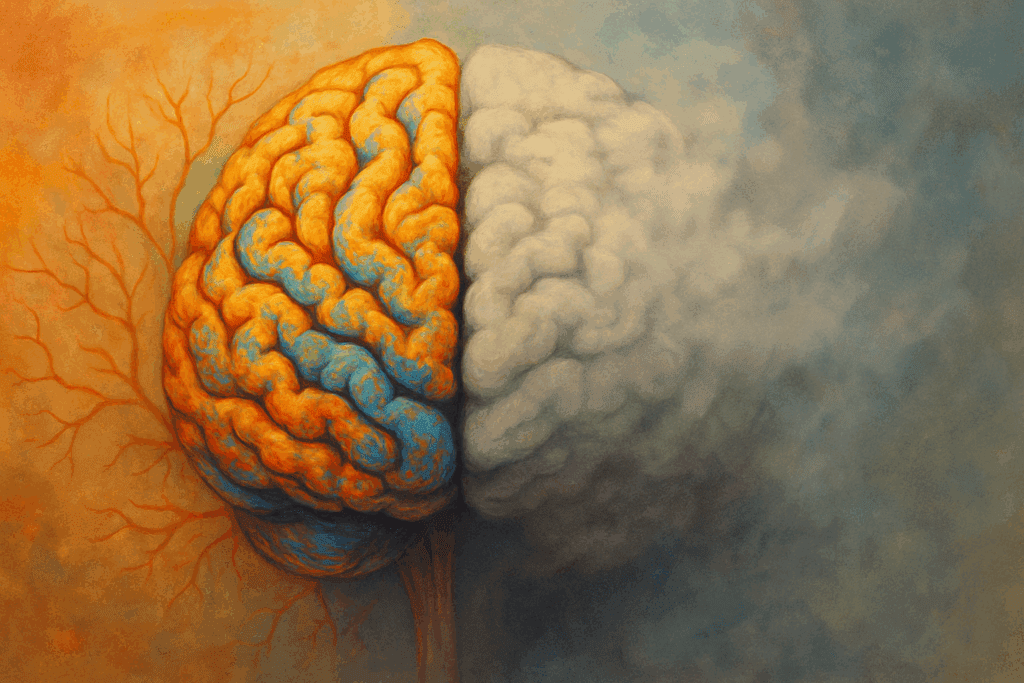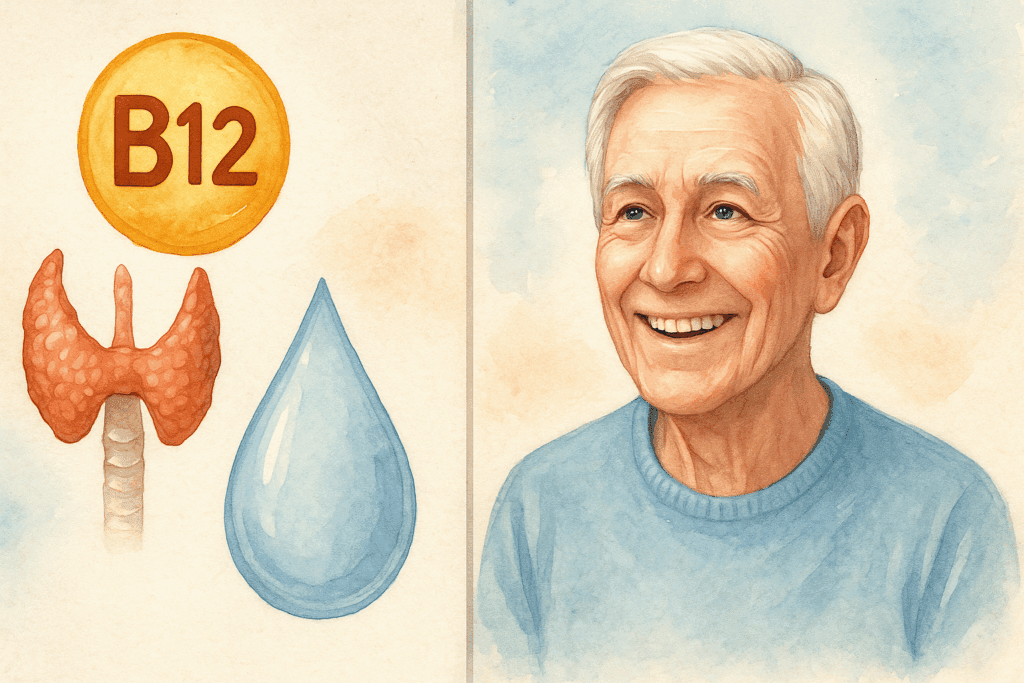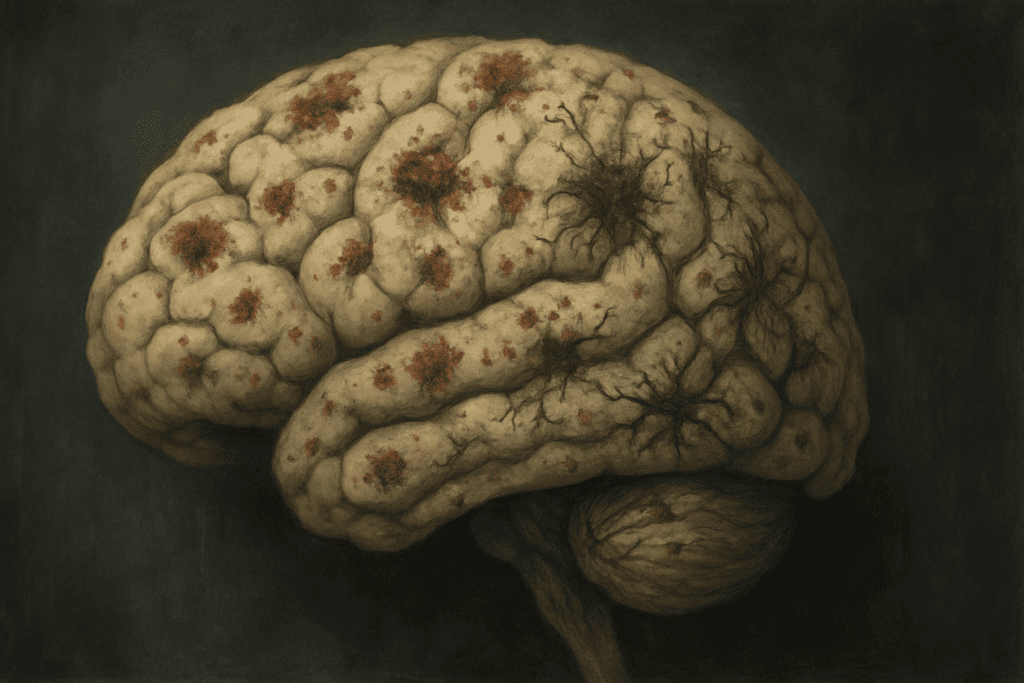Dementia is often thought of as an unstoppable progression—a gradual, irreversible descent into memory loss and confusion. But is this assumption entirely accurate? A growing body of research is prompting medical professionals and caregivers alike to ask an increasingly urgent question: can dementia be reversed if caught early? While the majority of dementia cases stem from neurodegenerative diseases that currently lack a cure, certain types of cognitive impairment are, in fact, treatable and even reversible if appropriately diagnosed. This article explores the compelling difference between reversible and irreversible causes of cognitive decline, the latest clinical insights, and what this distinction means for patients and families navigating early symptoms.
Understanding the difference is not merely academic—it’s life-changing. If early-stage cognitive symptoms are caused by a reversible factor, timely intervention can result in a dramatic turnaround in mental function. Conversely, if the root cause is an irreversible neurodegenerative condition like Alzheimer’s disease, early detection still provides critical opportunities to slow progression, plan for care, and access treatments that improve quality of life. In either case, early diagnosis is the pivot on which outcomes turn. As the healthcare community delves deeper into this nuanced terrain, the once-simple question—can you reverse dementia—demands a far more layered, evidence-based answer.
You may also like: How to Prevent Dementia and Alzheimer’s Disease Naturally: Expert-Backed Strategies to Reduce Your Risk Through Lifestyle and Diet

What Is Dementia and Why Is Early Detection So Critical?
Dementia is not a specific disease but rather a broad clinical syndrome characterized by a decline in cognitive function severe enough to interfere with daily life. Symptoms commonly include memory loss, impaired judgment, changes in personality, and difficulty with language or spatial orientation. Although most people equate dementia with aging, it is not a normal part of growing older. In fact, the early signs can be subtle and frequently mistaken for stress, depression, or normal forgetfulness.
The urgency behind early detection lies in the fact that certain types of dementia-like symptoms can be reversed or mitigated with timely treatment. This is where the central question—is dementia reversible—begins to gain clarity. For example, cognitive decline due to vitamin B12 deficiency, thyroid dysfunction, or chronic alcohol abuse can significantly improve with appropriate intervention. These treatable forms of cognitive impairment highlight the need for comprehensive diagnostic assessments, especially when symptoms first emerge.
Moreover, even in cases where the underlying condition is irreversible, early detection offers a critical window for therapeutic engagement. Medications, lifestyle adjustments, and supportive therapies can delay deterioration and enhance quality of life. This dual pathway—treating reversible causes and managing irreversible ones—forms the foundation for a proactive approach to dementia care.

Reversible Dementia: Conditions That Mimic Degenerative Decline
Many people are surprised to learn that a number of medical conditions can mimic dementia but are actually reversible. Understanding which condition is a cause of reversible dementia can dramatically alter the course of a patient’s life. Among the most common are metabolic and nutritional imbalances, infections, medication side effects, and psychiatric disorders.
One of the most well-documented reversible causes is a deficiency in vitamin B12. This essential nutrient plays a key role in neurological function, and low levels can cause symptoms nearly identical to those of Alzheimer’s. Restoring B12 levels through supplementation often leads to significant cognitive recovery. Similarly, hypothyroidism—an underactive thyroid—can impair memory, attention, and executive function, yet is entirely treatable with hormone replacement therapy.
Another culprit is chronic alcohol use, which can lead to a condition known as Wernicke-Korsakoff syndrome. In its early stages, cessation of alcohol use and thiamine supplementation can reverse dementia symptoms before permanent damage occurs. Additionally, urinary tract infections (especially in older adults), dehydration, and unmanaged diabetes can all cause cognitive changes that mimic dementia but resolve with appropriate care.
Importantly, psychiatric conditions like depression and anxiety can manifest as “pseudo-dementia.” Unlike true dementia, pseudo-dementia is characterized by inconsistent cognitive deficits that often improve with treatment of the underlying mood disorder. These examples reinforce the critical importance of a comprehensive medical workup before concluding that a patient has an irreversible form of dementia.

Irreversible Dementia: When Cognitive Decline Cannot Be Cured
While it’s heartening to know that some cognitive impairments are reversible, the majority of dementia cases remain irreversible and progressive. This is especially true for neurodegenerative diseases such as Alzheimer’s, frontotemporal dementia, and Lewy body dementia. These conditions are caused by structural changes in the brain—such as the buildup of amyloid plaques and tau tangles—that result in gradual neuronal loss.
What is the most common cause of irreversible dementia? The answer is unequivocal: Alzheimer’s disease. Accounting for 60 to 80 percent of all dementia cases, Alzheimer’s is a progressive condition with no known cure. Although early detection can lead to better symptom management, the underlying neurodegeneration cannot be stopped or reversed at this time.
Other causes of irreversible dementia include vascular dementia, often resulting from multiple small strokes; Parkinson’s disease dementia, which emerges in later stages of Parkinsonian illness; and Huntington’s disease, a rare but fatal inherited condition. In all these cases, the damage to brain tissue is permanent, and treatment focuses on slowing progression, managing symptoms, and supporting the patient’s functional ability.
However, even in irreversible dementia, not all hope is lost. Clinical trials and research in the fields of neurology and geriatric psychiatry are exploring new therapies aimed at reducing inflammation, enhancing synaptic function, and potentially regenerating lost neuronal connections. These scientific advances keep the door open for future breakthroughs—even if can dementia be reversed is currently met with a cautious “no” in these contexts.

Can Dementia Be Reversed If Caught Early?
Returning to the central question—can dementia be reversed if caught early—the answer depends heavily on the cause. In cases where dementia-like symptoms stem from reversible conditions, early detection is often the key determinant of successful recovery. The sooner a correct diagnosis is made, the greater the chance of full or partial cognitive restoration.
Take, for instance, normal pressure hydrocephalus (NPH), a lesser-known but treatable condition that can cause walking difficulties, urinary incontinence, and dementia-like symptoms. When identified early, surgical intervention via shunt placement can alleviate symptoms and sometimes reverse dementia entirely. Similarly, removing a brain tumor or adjusting medication dosages that impair cognition can lead to rapid improvement if the condition is recognized in its early stages.
Even in irreversible forms, early intervention may not reverse dementia but can significantly delay functional decline. Cholinesterase inhibitors and memantine are commonly used medications that can stabilize symptoms in the early to moderate stages of Alzheimer’s. Lifestyle interventions such as physical exercise, cognitive stimulation, and dietary changes—particularly those aligned with the MIND or Mediterranean diets—are shown to support brain health and slow progression when adopted early in the disease course.
Early diagnosis also empowers patients and families to engage in meaningful planning, participate in clinical trials, and explore cutting-edge therapies. For these reasons, while not all dementia can be reversed, identifying it early maximizes every available tool to improve or maintain quality of life.
Differentiating Reversible vs. Irreversible Causes of Dementia
Determining whether a case of cognitive impairment is reversible or irreversible involves a careful diagnostic process that includes medical history, physical exams, laboratory tests, and often neuroimaging. Physicians must assess not only neurological symptoms but also potential systemic contributors like liver function, renal health, and cardiovascular status. Brain scans can help identify structural abnormalities such as tumors, strokes, or hydrocephalus, while blood tests can uncover metabolic or infectious causes.
Neuropsychological testing is another essential tool in differentiating dementia types. These evaluations assess memory, language, attention, executive function, and problem-solving skills in depth. For example, a patient with rapid-onset confusion and fluctuating alertness may be more likely to have delirium or an infection-related cognitive decline—both potentially reversible—than Alzheimer’s disease.
Another crucial aspect of this diagnostic process is medication review. Polypharmacy, or the simultaneous use of multiple medications, is a leading yet underrecognized condition that is a cause of reversible dementia in older adults. Sedatives, anticholinergics, and certain pain medications can all cloud cognition and should be evaluated carefully by clinicians.
The difference between a reversible and irreversible diagnosis doesn’t just change the treatment—it redefines the patient’s entire journey. It determines whether the focus should be on cure or on care, on reversal or adaptation. That distinction makes comprehensive, early diagnostic evaluation not just beneficial, but essential.

Emerging Treatments and Future Directions in Dementia Reversal
Although most irreversible dementias are currently incurable, the field of neurology is rapidly evolving. Innovative research is exploring how to harness neuroplasticity—the brain’s ability to reorganize itself—to potentially reverse dementia at the neuronal level. While these approaches are not yet standard, they offer hope for the future and fuel the motivation behind early screening and aggressive intervention.
One promising area of research involves the use of anti-amyloid and anti-tau monoclonal antibodies, designed to target the abnormal proteins associated with Alzheimer’s disease. Some early clinical trials have demonstrated modest slowing of cognitive decline, though these treatments are not yet proven to reverse dementia. Other studies are looking at the potential of stem cell therapies, which may one day offer regenerative options for damaged brain tissue.
Nutraceuticals and dietary interventions are also drawing scientific interest. Compounds such as curcumin, resveratrol, and omega-3 fatty acids are being evaluated for their neuroprotective properties. While these compounds are not magic bullets, they may play a supportive role in broader strategies aimed at improving brain resilience—particularly when integrated into early-stage care plans.
Cognitive training, virtual reality-based neurorehabilitation, and non-invasive brain stimulation (such as transcranial direct current stimulation) represent additional frontiers. These modalities are being explored for their potential to strengthen cognitive networks and delay symptom progression, with some early evidence suggesting that combined, multimodal strategies may offer more promise than medication alone.

The Role of Lifestyle in Reversing or Preventing Dementia
Although lifestyle modifications alone cannot typically reverse dementia, they are among the most powerful tools in preventing its onset or slowing its progression. Regular physical exercise enhances cerebral blood flow, encourages the release of neurotrophic factors, and supports vascular health—all critical components of cognitive function.
Cognitive stimulation through activities such as learning new languages, playing strategy games, or engaging in meaningful social interactions also helps keep neural pathways active. Emerging evidence suggests that people who consistently challenge their brains throughout life may build a “cognitive reserve” that delays the onset of symptoms, even in the presence of underlying brain pathology.
Dietary choices also matter. Diets rich in leafy greens, whole grains, berries, fish, and healthy fats—like those emphasized in the MIND diet—are associated with a lower risk of cognitive decline. Antioxidants, polyphenols, and omega-3 fatty acids found in such diets have been shown to reduce inflammation and oxidative stress in the brain.
Sleep hygiene, stress management, and avoidance of harmful substances like tobacco and excessive alcohol further support cognitive health. While no lifestyle change offers a guaranteed cure, the synergy of these factors represents the most compelling non-pharmaceutical intervention for those at risk. For some individuals with reversible forms of impairment, these adjustments can even be sufficient to reverse dementia symptoms entirely.
Can You Reverse Dementia Through Integrative Approaches?
Integrative medicine takes a holistic approach to health, combining conventional treatments with complementary strategies such as acupuncture, meditation, herbal therapies, and personalized nutrition. For individuals wondering can you reverse dementia through such means, the answer is cautiously optimistic—but highly individualized.
Certain herbal compounds, including Ginkgo biloba and Bacopa monnieri, have shown promise in small studies for improving cognitive performance. However, more large-scale research is needed before these can be recommended as standalone treatments. Similarly, mindfulness-based stress reduction and yoga have demonstrated benefits in improving mental clarity and emotional regulation in early cognitive impairment.
What makes integrative medicine especially valuable is its focus on the whole person—addressing not only neurological symptoms but also emotional, social, and spiritual well-being. While not a cure, this approach may improve the quality of life and potentially enhance the efficacy of traditional treatments, particularly when initiated in the early stages of cognitive decline.
When asking is dementia reversible, the most realistic answer lies in embracing a comprehensive care model that includes early detection, conventional medical intervention, and holistic lifestyle optimization. Together, these strategies create the strongest possible foundation for preventing further decline—and in some cases, facilitating genuine cognitive recovery.
Frequently Asked Questions: Understanding Dementia Reversal and Cognitive Recovery
1. Are there specific diagnostic tools that help determine if dementia can be reversed?
Yes, clinicians now have access to a range of advanced diagnostic tools that help distinguish between reversible and irreversible causes of cognitive decline. Functional MRI and PET scans can highlight brain regions affected by inflammation, hypoperfusion, or abnormal protein deposits, offering clues about whether a case is more likely to reverse dementia with treatment. Blood biomarkers are also being developed to detect neurodegenerative changes earlier than conventional imaging. When asking can dementia be reversed, these diagnostic innovations help doctors tailor a more accurate prognosis. Importantly, a comprehensive medical history, medication review, and blood panel remain essential for identifying which condition is a cause of reversible dementia, especially in complex or overlapping cases.
2. How can family members advocate for early detection if a loved one shows cognitive changes?
Family members often notice subtle changes before a person is formally diagnosed. If someone is displaying new forgetfulness, mood shifts, or difficulty with decision-making, it’s essential to seek a full cognitive assessment promptly. By advocating for early screening, families help increase the odds that, if the underlying issue is treatable, clinicians can reverse dementia symptoms through timely intervention. This is especially important because some people are reluctant to seek help out of fear or embarrassment. However, knowing that dementia can be reversed if caught early in some cases provides strong motivation to act swiftly, particularly when memory issues arise after a new medication, illness, or lifestyle change.
3. Are there reversible forms of dementia that are often misdiagnosed as Alzheimer’s disease?
Yes, certain conditions are commonly misclassified as Alzheimer’s because they mimic its symptoms closely. Normal pressure hydrocephalus (NPH), for instance, can cause memory loss, poor balance, and confusion—symptoms often mistaken for Alzheimer’s—but it is potentially reversible with surgical intervention. Similarly, autoimmune encephalitis and chronic infections like neurosyphilis may initially present with progressive memory decline, yet resolve with proper treatment. These examples underscore the importance of asking not just can dementia be reversed, but also probing deeper into which condition is a cause of reversible dementia to avoid premature or inaccurate diagnoses. A second opinion from a neurologist or memory specialist can be crucial in these ambiguous cases.
4. What lifestyle interventions show promise in supporting cognitive recovery from reversible dementia?
Patients recovering from reversible forms of dementia often benefit significantly from lifestyle interventions, especially when integrated early in their treatment plan. Nutritional rehabilitation, particularly in cases involving B12 or folate deficiency, can be critical in helping to reverse dementia symptoms. Engaging in cognitive rehabilitation programs that include memory games, social interaction, and brain training tasks also enhances neural plasticity. Physical activity, especially aerobic exercise, is known to improve cerebral blood flow and executive functioning. These tools are not only effective but empowering, especially for individuals wondering can dementia be reversed if caught early through non-pharmaceutical means. While not a standalone solution for all types, they’re essential components of a holistic recovery strategy.
5. How does the social environment impact outcomes in potentially reversible dementia cases?
Social engagement plays a surprisingly powerful role in cognitive outcomes. Isolation can accelerate cognitive decline, while structured social interaction has been shown to stabilize or even improve memory and executive function in early-stage cognitive impairment. This is especially relevant when exploring can you reverse dementia, since the right environment can enhance recovery in treatable conditions. Supportive communities and caregiver involvement often make the difference between regression and stabilization. In cases where families question is dementia reversible, they should consider not just medical treatments, but also whether a stimulating, socially rich environment is being provided during the recovery process.
6. Are younger individuals ever diagnosed with reversible forms of dementia?
Yes, early-onset cognitive impairment, particularly in individuals under age 65, is more likely to stem from a reversible cause compared to late-onset cases. Autoimmune conditions like lupus, multiple sclerosis, or Hashimoto’s encephalopathy can present with dementia-like symptoms and are often treatable. Substance-induced cognitive decline from medications, alcohol, or recreational drugs is also more common in younger individuals and may be resolved with detoxification and neurocognitive therapy. For these reasons, the question can dementia be reversed takes on a different tone in younger populations, where treatable causes are more prevalent. Early recognition and targeted intervention improve the odds of full cognitive recovery, making it vital to ask can dementia be reversed if caught early—even in people under 50.
7. What is the most common cause of irreversible dementia, and why is it so difficult to treat?
Among the many neurodegenerative disorders, what is the most common cause of irreversible dementia remains Alzheimer’s disease. The complexity of Alzheimer’s lies in its multifactorial nature—it involves amyloid plaques, tau tangles, inflammation, vascular damage, and oxidative stress. Despite decades of research, there is still no cure that can reverse dementia caused by these structural and biochemical brain changes. Treatment is focused on symptom management, but new biologics like monoclonal antibodies are offering modest progress in slowing progression. This highlights the harsh truth: even if dementia can be reversed if caught early in some forms, Alzheimer’s requires a different approach, focusing on delay and quality of life rather than cure.
8. Can cognitive therapy alone reverse dementia symptoms in some cases?
Cognitive therapy—particularly when personalized and delivered intensively—has shown benefits in select cases of reversible cognitive decline. For example, patients recovering from depression-induced “pseudo-dementia” often respond well to therapy combined with antidepressants. Similarly, individuals with cognitive issues due to sleep apnea may experience dramatic improvement once CPAP therapy is combined with cognitive stimulation strategies. In such cases, clinicians may confidently say that yes, dementia can be reversed with a non-pharmacological approach. The key is matching the therapy to the root cause. When addressing which condition is a cause of reversible dementia, it’s crucial to tailor cognitive therapy to the specific physiological and emotional factors at play.
9. How do reversible and irreversible dementias differ in how they affect daily function over time?
In reversible dementias, once the underlying condition is treated, improvements in daily function can occur rapidly—sometimes within weeks. Tasks like remembering appointments, managing medications, or balancing finances often return to baseline levels with little or no long-term support. In contrast, irreversible dementias such as frontotemporal dementia or Alzheimer’s follow a progressive trajectory, requiring ongoing support and increasing levels of caregiving. This stark contrast is central to why identifying which condition is a cause of reversible dementia is so important. While dementia can be reversed if caught early in select cases, irreversible types demand a longer-term strategy focused on adaptation rather than reversal.
10. What innovations are being developed to help clinicians determine whether dementia is reversible?
Emerging innovations in the field of neurodiagnostics are making it easier to answer the question is dementia reversible. AI-powered imaging analysis, blood-based biomarkers for tau and amyloid, and mobile cognitive testing platforms are among the newest tools being adopted. These advances enable faster differentiation between reversible and irreversible cases and improve access to specialized care. Researchers are also developing algorithms that integrate lifestyle data, genetic predisposition, and medical history to predict whether intervention will likely reverse dementia. While not yet perfect, these technologies offer hope for earlier, more accurate diagnosis—especially in contexts where can dementia be reversed if caught early becomes a time-sensitive question with life-altering implications.
Final Thoughts: Can Dementia Be Reversed If Caught Early?
The journey to understand whether dementia can be reversed if caught early leads us through a complex landscape of medical discovery, individualized care, and hopeful innovation. The evidence is clear that some causes of cognitive decline are indeed reversible when addressed in time. Conditions such as nutritional deficiencies, metabolic imbalances, medication side effects, and certain infections can mimic dementia—and with the right diagnosis and intervention, patients often recover fully or significantly.
At the same time, for those grappling with irreversible forms of dementia like Alzheimer’s disease, early detection remains essential. It opens the door to treatments that can slow progression, improve quality of life, and provide a critical window for planning, support, and clinical trial participation. Though we may not yet be able to completely reverse dementia in these cases, the power of early action cannot be overstated.
Further Reading:
Prevalence of treatable and reversible dementias: A study in a dementia outpatient clinic


